Three new PhD students from Thailand, Nigeria and Peru joined the Mistra Geopolitics Research School, hosted by Lund University and Stockholm University. With different areas of expertise, Oluwatunmise Paimo, Pável Aguilar and Kanin Laopirun will be introduced to techniques to better analyse the connections between geopolitics and sustainable development.
Providing an opportunity for learning through Mistra Geopolitics Research School
Through the Research School, the Mistra Geopolitics research programme provides a unique opportunity for PhD students from around the world to apply for scholarships and join the programme as visiting research students.
“It’s a great privilege for the Mistra Geopolitics Research School to host Kanin Laopirun, Oluwatunmise Paimo, and Pável Francoise Aguilar Dueñas as guest PhD students during the fall of 2022. They bring new experiences and perspectives to our programme, and as they take part in the activities organized by the Research School the network of young scholars working on the geopolitics of sustainable transition expands. This, we think, really shows the added-value of the programme and the Research School.”
The chosen scholars are introduced to methods, theories, and data collection techniques for advanced analysis of geopolitics and sustainable development. In addition, the research school also acts as a meeting point for doctoral students, researchers and the Scientific Advisory Board.
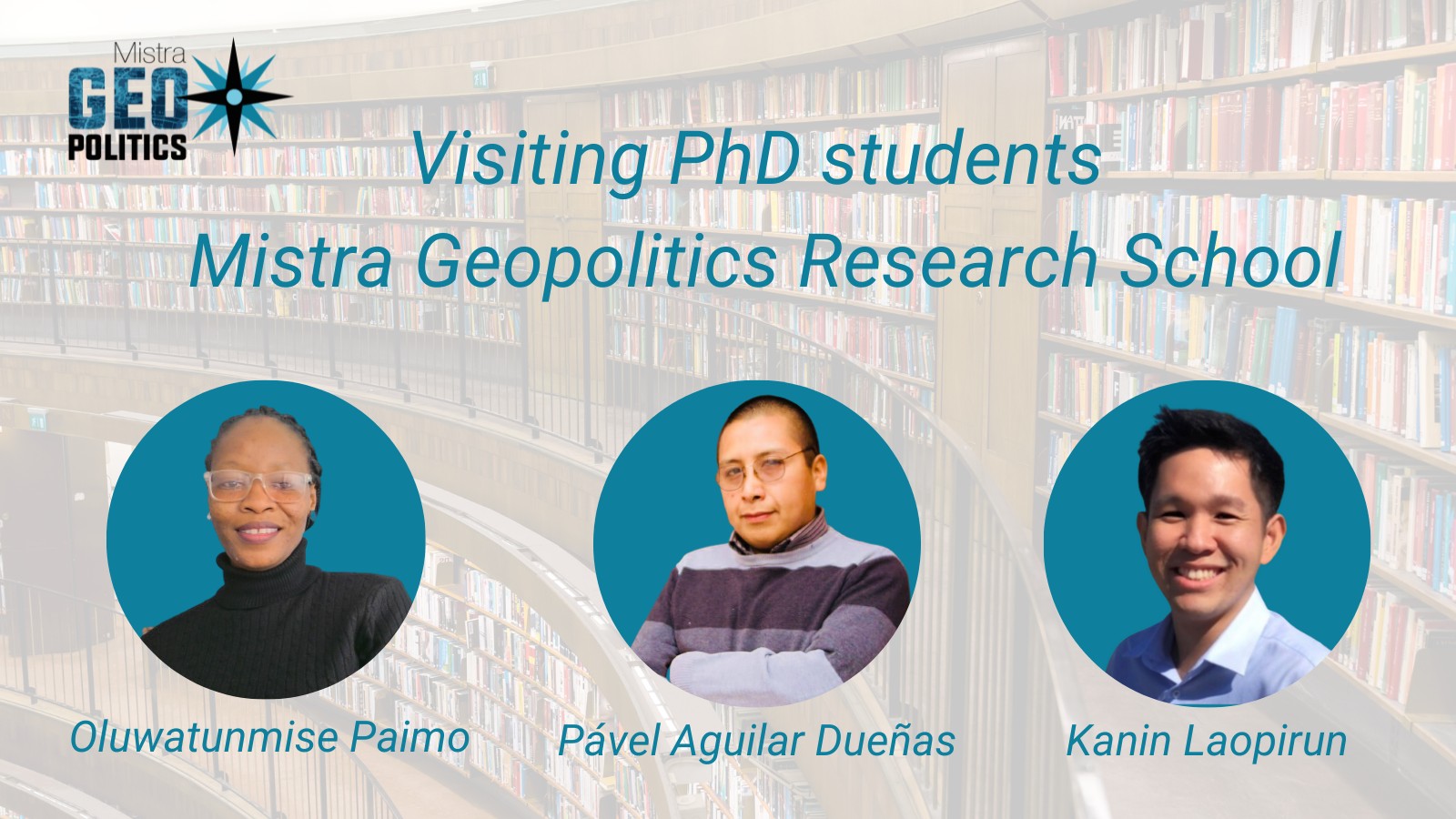
Among the reasons standing out for applying to join the programme were expanding research expertise on climate and environmental issues, through a geopolitical perspective, and hearing positive experiences from alumni.
‘’ I joined the Mistra Geopolitics so that I can properly understand how my research on security, peace and conflict resolutions could be linked to issues that have to do with the environment; and how I can properly explain these issues, and give answers to questions that have been raised in my research.”
– Oluwatunmise Paimo, PhD candidate in International Relations, at the Obafemi Awolowo University (OAU), Ile-Ife, Nigeria and visiting student at Stockholm University.
A shared interest in informing policy and governance among the visiting PhD students.
Kanin Laopirun develops his research around the plastic circular economy in Thailand. He focuses on exploring the assessment framework to measure how plastic products and packaging are produced and used by industries, consumers and trade, as well as managed and recycled. It aims at informing the circular economy policy measures to reduce and prevent plastic waste leakage into the environment.
“The public sector needs some guidance, for example, a tool to monitor and assess the implementation of policies. My assessment framework tries to see through the links within the national economic system, as well as its players – consumers, the industrial sector and international trade – to the plastic and waste generation question.
I foresee that my research could potentially provide a foundation to act as the anchor for policy formulation and coordination in Thailand.”
– Kanin Laopirun, PhD candidate in Natural Resources Management at Asian Institute of Technology in Thailand and visiting student at Lund University
Oluwatunmise Paimo is particularly passionate about security issues, focusing on analyzing discourses around terrorism and at how digital technology can counteract it. She believes exploring some theories in-depth can help to better explain security issues connected to the environment. For instance, how the Lake Chad Basin in Niger, Chad and Cameroon are often a propellant of terrorism in Nigeria, and how the problem is exacerbated by climate change in this region. Her research seeks to look at how some of these challenges have been exacerbated in undeveloped countries, where the financial wherewithal to counter these issues is probably not working.
”I have seen within my short period in the program that most of the crises in developing or undeveloped countries have in one way or the other been linked to climate change. The challenge is that problematizing climate change around security issues is not given enough emphasis in these areas.”
– Oluwatunmise Paimo, PhD candidate in International Relations, at the Obafemi Awolowo University (OAU), Ile-Ife, Nigeria and visiting student at Stockholm University.
Pável Aguilar’s research is focused on the study of the impact that transnational extractive agriculture products on food security and food sovereignty within the Peruvian northern coast. In particular, his interests lay in understanding how the liberalization policies implemented from 1990 in Peru have built private governance on natural resources with detrimental effects on vulnerable populations and fragile environments.
“I’m convinced that research is absolutely important for improving public policies, preventive actions and state-level initiatives for regulating the access and exploitation of natural resources. In this sense, my work highlights important territorial transformations where the global supply chains deteriorate the environment and the local livelihoods. Therefore, generating evidence could help to take measures of remediation and design better public policies.”
– Pável Aguilar, PhD candidate in Sociology at the Catholic University of Peru and Free University of Berlin in Germany, with the support of trAndeS Programme, and visiting student at Stockholm University.
PhD students
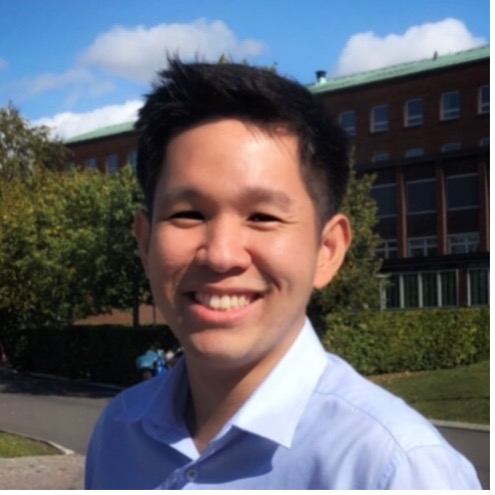
Kanin Laopirun
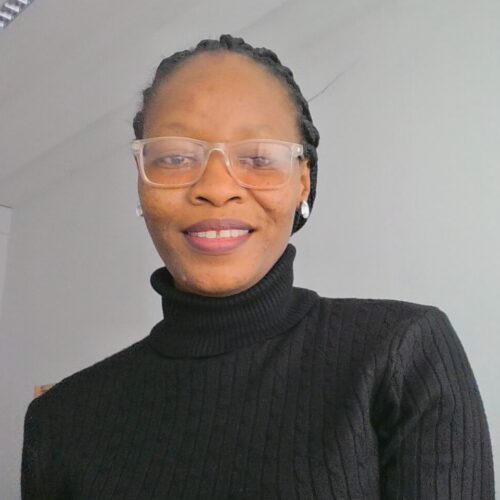
Oluwatunmise Paimo
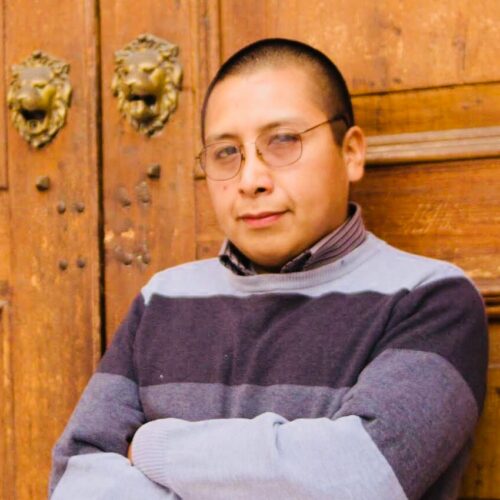
Pável Aguilar Dueñas
For more information contact
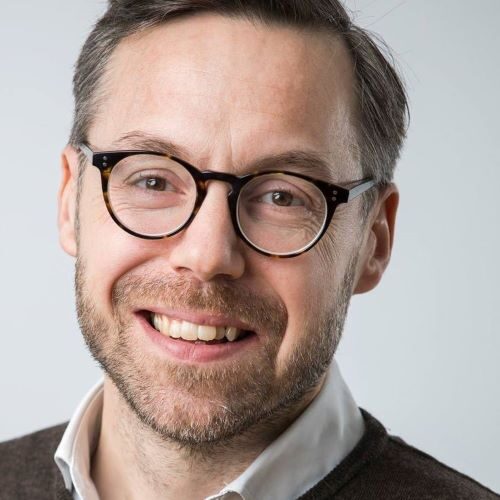
Niklas Bremberg
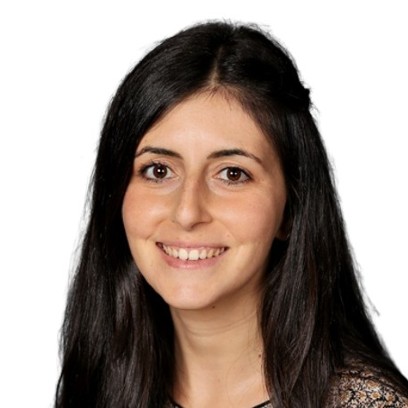
Ana Calvo
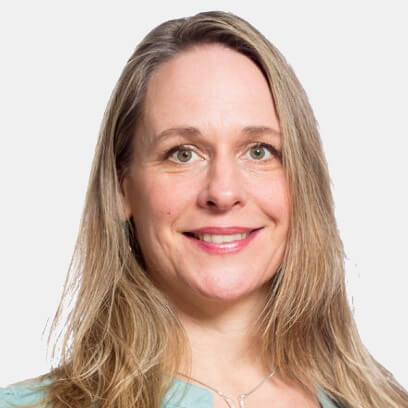
Ylva Rylander
This text was written by Ana Calvo, Communications Assistant at SEI and Mistra Geopolitics. Edited by Ylva Rylander, Communications Officer at SEI and Mistra Geopolitics.



